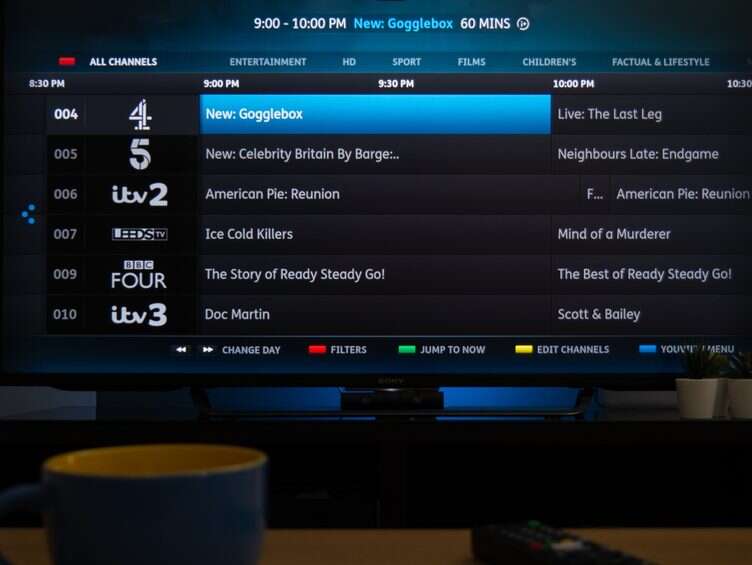
Broadcast news producer ITN has warned of a “news desert” in which disinformation and misinformation could be allowed to thrive without updated regulation.
ITN, which produces ITV News, Channel 4 News and 5 News, fears audiences could struggle to locate or access high-quality news online unless new requirements make finding trusted news in digital environments as easy as switching on News at Ten.
The broadcast producer shared its fears in response to Ofcom’s consultation on the future of public service media as it called for measures guaranteeing news is found quickly and easily on a wide range of platforms, as well as sustainable funding for journalism.
In its submission to Ofcom, ITN raised concerns of a “news desert” in which “significant numbers of people can afford only a limited number of subscription services, none of which carry regulated, accurate news”.
“Without a clear regulatory framework to ensure the provision and visibility of PSM news in a digital environment, misinformation and disinformation will continue to thrive while regulated, accurate, professionally produced news will become harder to find,” it said.
“The ability to access independent and impartial journalism underpins any functioning society.”
Ofcom said in its introduction to the consultation in December that “trusted and accurate” news was viewed by audiences as the most important feature of public service broadcasting (PSB).
ITN called for a “must-carry” obligation with sufficient prominence for PSB content, particularly news, regardless of the platform it appears on.
The DCMS Committee agreed, saying in its report on the future of public service broadcasting on Thursday that the Government has been “too slow” to act on Ofcom recommendations to this effect from 2019.
It said it was “frustrated” that Media Minister John Whittingdale estimated the process will take another two years, saying “new primary legislation is urgently needed and the media ecology advances far too quickly for the Government to delay any further”.
Companies like Samsung and Amazon had argued that such legislation would prove costly and that PSB on-demand services are already prominent anyway. Sky had said: “Partnerships and commercial incentives tend to drive more effective outcomes than complex legislation.”
But the committee said: “We are not persuaded by arguments that prominence can be left to the market simply because PSB content is popular – and if an organisation such as Freeview, which represents the interests of over 70 TV channels, finds it difficult to negotiate with global platforms and TV manufacturers, it is unlikely that individual PSBs will find it any easier.”
A BBC spokesperson said the corporation was “pleased to see the committee call for updated legislation to ensure the BBC is prominent on digital platforms so audiences can easily find public service programmes and agree that changes”.
ITN also called for there to be a spectrum of accountability online, with PSB providers proactively regulated and operating under strict impartiality and accuracy requirements, and other organisations given the option to sign up for lower levels of accountability.
[Read more: Dow Jones boss says Google deal ‘historic shift’ but ITN CEO says ad hoc deals not enough]
It also wants a framework to ensure consistent negotiations between online platforms and public service content providers, guaranteeing funding for news.
The DCMS Committee recommended the Government should widen the scope of its planned Digital Markets Unit to “consider whether the dominance of online platforms gives them undue influence over the ability of consumers to access public service broadcasting content online and through streaming”.
[Read more: Government to create competition regime tackling ‘fundamental imbalance of power’ between platforms and publishers]
It went on: “Where an established media brand is providing programming, it is not right to make the default assumption that YouTube’s contribution to the viewer deciding to watch that programme, and therefore its share of the value chain, is the same as where content is user-generated.
“For news, this approach would, if allowed to continue, over time erode the ability of PSBs such as ITV and Channel 4 to actually produce quality, well-researched news coverage.
“The Digital Markets Unit should also consider whether the standard terms and conditions for revenue sharing which are used by some platforms offer a fair return for PSBs in exchange for their content.”
The committee’s report concluded that ongoing uncertainty over what the future may hold for PSBs was “damaging”.
It said the Government should “recognise that speedy decisions on some long-standing issues are needed”, including through the “long overdue” prominence recommendations.
ITN chief executive Anna Mallett said: “ITN’s response to Ofcom’s consultation is based on the central premise that the quality of our journalism provides key social and democratic benefits.
“March marks one-year of life during the pandemic and ITN, with less than 400 journalists, has punched well above its weight in the broadcasting landscape. Any future system should seek to maintain the benefits provided to society from sustainably funded, quality, public service news provision.”
Picture: Shutterstock
Email pged@pressgazette.co.uk to point out mistakes, provide story tips or send in a letter for publication on our "Letters Page" blog
